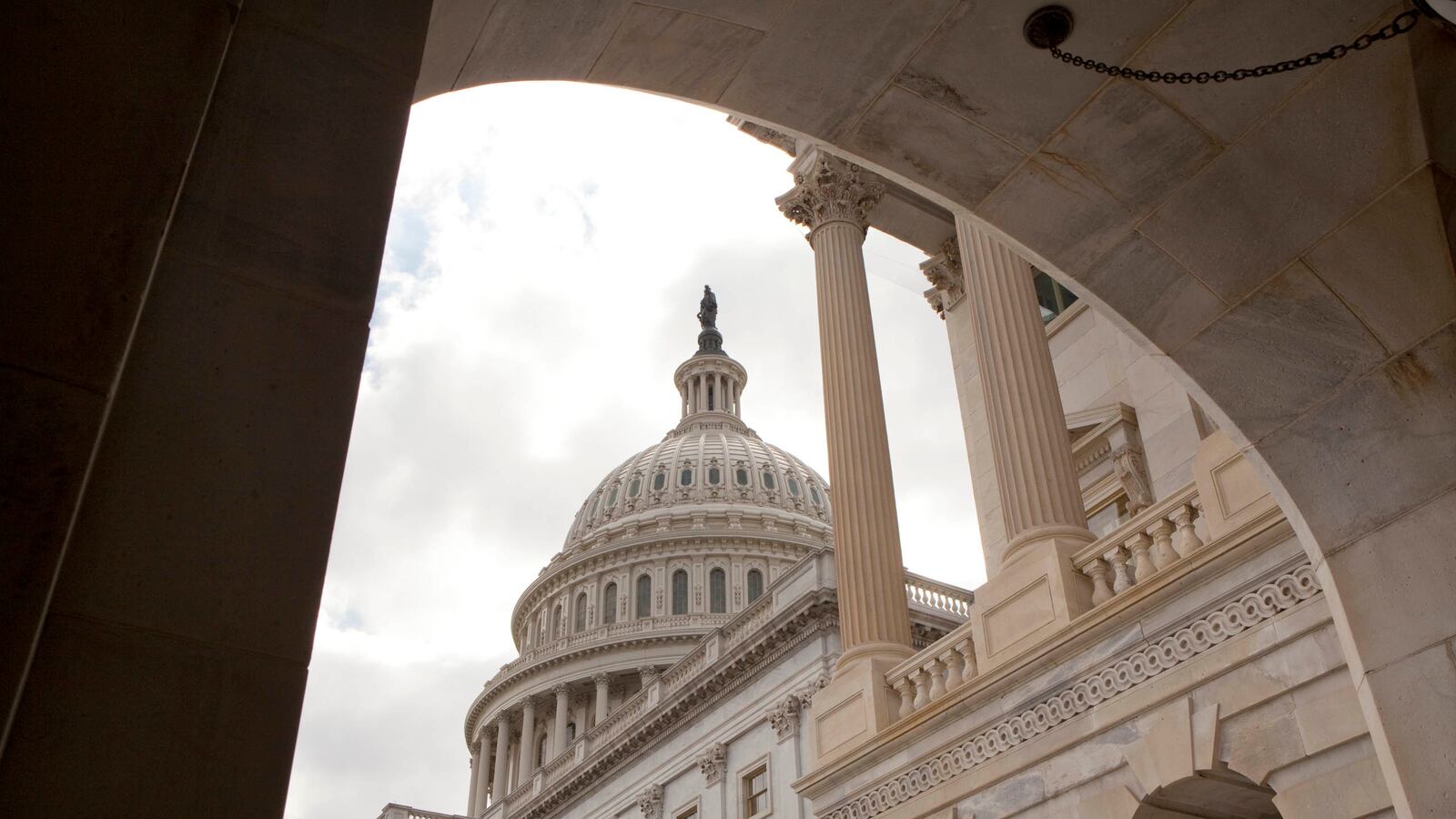The debt ceiling should really be renamed the default ceiling. This catastrophic game of chicken cost the U.S. our AAA credit rating and $19 billion when it was last employed in the summer of 2011 by House radicals who pretended their intransigence was a stand for fiscal responsibility.

Now the default ceiling is looming again, promising yet another showdown between President Obama and House Republicans. But even Speaker John Boehner realizes that the 50 or so radicals on the far right of his own party—the Bachmann, Broun, Gohmert and King crew—are the greatest impediment to responsible self-government right now.
That’s why the new responsible Republican proposal, which passed the House Thursday by a vote of 221-207, could be the best way to defuse the debt ceiling from its most destructive impact.
The “Full Faith and Credit Act”, proposed by Republican representative Tom McClintock and backed by powerful House Ways and Means Committee chairman Dave Camp would empower the U.S. Treasury to pay down all interest payments on the national debt in the event of a confrontation over raising the debt ceiling. In other words, the link between debt ceiling and the risk of default would be removed. The bill would also ensure that the Social Security Administration could access its own trust fund to pay social security benefits and disability payments on time by allowing the treasury to issue debt specifically tied to these benefits.
The best thing for the country would be for Congress to stop pretending that raising the debt ceiling is a stand for fiscal responsibility. It’s just really a repeat failure to pay the credit card bill we’ve already earned, and when private citizens do that, they’re called deadbeats.
A similar temporary measure was employed in 1996, when then-House speaker Newt Gingrich was facing off with President Bill Clinton. In addition, Democrat Senator Bill Nelson proposed a similar bill to cover social security payments back in 2011, citing the 1996 precedent. Interestingly, Treasury Secretary Jack Lew was serving in the Clinton administration when this was first proposed.
So the Full Faith and Credit Act should be a no-brainer. But the Obama administration is opposing the measure, releasing a Statement of Administration from the Office of Management and Budget that stated H.R. 807 would “result in Congress refusing to pay obligations it has already agreed to … this bill would threaten the full faith and credit of the United States … this legislation is unwise, unworkable, and unacceptably risky.”
No doubt this overheated opposition is due to their concern that the bill would end up empowering future debt-ceiling stand-offs by removing the most rational objection: default. But that’s no reason to ignore the fact that this flexibility would reduce the harmful impact of the gamesmanship. The Obama administration’s rhetoric ignores the obvious intent of this bill: to preserve the full faith and credit of the United States, even as Congress debates the growth in spending and debt. Removing the archaic requirement that Congress approve increases in the debt limit would be better, but that isn’t going to happen any time soon. Ignoring or attacking this common-sense proposal doesn’t remove its virtue or value.
The Full Faith and Credit Act has already passed the House. The Senate should embrace it as a responsible pain-mitigation measure. A grand bargain or tax reform might still be the outcome from this congressional session (I’m an optimist), and no doubt some conservatives intend to use the debt ceiling as leverage despite the disastrous impact of the last round of brinksmanship. But by reducing the risk of default and preserving the delivery of disability and social security checks, this bill would protect our country’s credit and our most vulnerable citizens from the impact of congressional intransigence. And that is a responsible step in the right direction.






